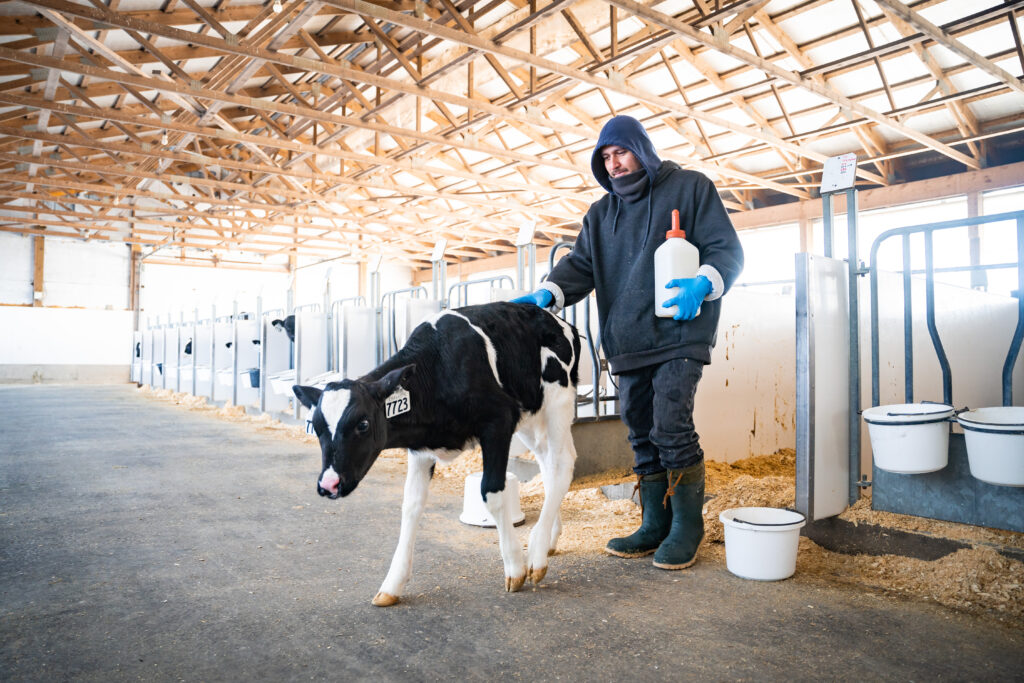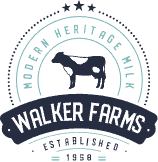
As winter sets in, many of us bundle up to stay warm—but have you ever wondered how dairy cows handle the cold? At Walker Farms, where we raise A2 protein cows, we take special care to ensure their comfort during the colder months. Here’s how our A2 protein cows naturally adapt to the chill.
How Do A2 Protein Cows Adapt to Cold Weather?
- Thickening of the Coat:
The cows grow a thick winter coat, with dense underfur that traps heat and longer guard hairs to protect against wind and moisture. This helps keep them warm even on the coldest days. - Increased Feed Intake:
To generate extra heat, cows consume more food in winter. At Walker Farms, we ensure our cows have access to high-quality hay and other feed to meet their increased energy needs. - Shelter and Wind Protection:
While the cows can tolerate cold, they still need protection from harsh wind and rain. We provide barns and windbreaks to ensure they stay dry and comfortable. - Increased Activity and Shivering:
Just like us, cows shiver when they’re cold, helping to generate heat. They may also move more to keep their circulation active and warm.
A2 Protein Cows: Built for Winter
A2 protein cows like Holsteins are naturally well-suited to colder climates. Their thicker coats and ability to increase body fat for insulation help them stay comfortable in winter. Plus, the fermentation of fibrous feed in their rumens generates heat, adding to their warmth.
The Walker Farms Commitment
At Walker Farms, we ensure our cows are well-cared for during the winter months, with the right feed, shelter, and attention to their health. Their natural winter adaptations combined with our commitment to their well-being—ensure they stay happy and healthy all season long, producing high-quality milk that you can enjoy year-round.
If you’ve ever wondered how we care for our cows during the colder months or have questions about winter farming, feel free to reach out. We’d love to hear from you!
Sources:
